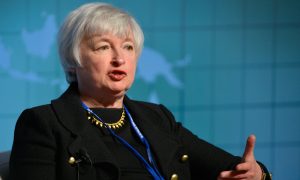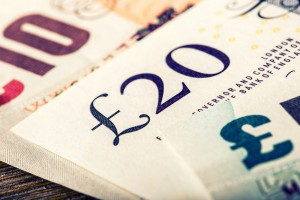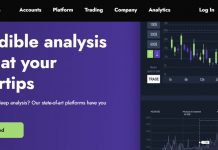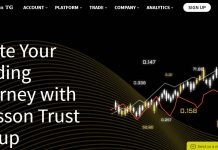Withdrawal of QE to start next month
 The latest two-day FOMC meeting concluded yesterday with Fed Chair Janet Yellen announcing that the Fed will start to reduce the size of its balance sheet, bloated by “printing money” at the height of the financial crisis in October. She also gave considerable advance guidance as to the timing of the next hike in rates.
The latest two-day FOMC meeting concluded yesterday with Fed Chair Janet Yellen announcing that the Fed will start to reduce the size of its balance sheet, bloated by “printing money” at the height of the financial crisis in October. She also gave considerable advance guidance as to the timing of the next hike in rates.
Interest rate futures now predict a 70% chance of a rate hike in December, the anniversary of the first hike in the current series.
The FOMC believes the current benign inflation picture is transitory although since they are unable to fully understand the lack of prices growth, they cannot predict when it will return to trend.
The Fed also lowered its long-term “neutral” interest rate projection from 3% to 2.75% a level which will likely be reached by the of next year as normality returns.
The dollar rebounded strongly following the FOMC press conference and can now be expected to make further gains against the single currency as the gulf between monetary policy expectations, as well as actual rates, widens. It reached 1.1861 and can now be expected to test resistance between 1.1820 and 1.1780.
U.K. Retail Sales Drive Irrational Rate Hike expectation
 Yesterday’s appreciably stronger than expected August Retail Sales data drove an irrational expectation that the MPC will hike rates as soon as November. There are several reasons that there should be an air of caution when considering the consumer as a driver of monetary policy.
Yesterday’s appreciably stronger than expected August Retail Sales data drove an irrational expectation that the MPC will hike rates as soon as November. There are several reasons that there should be an air of caution when considering the consumer as a driver of monetary policy.
Consumer confidence is weak as wages growth fails to keep up with prices. The Bank of England released a report yesterday in which it revealed the extent of decline in wage growth. It also showed how business investment which drives manufacturing sentiment and, eventually, incomes, is falling at an alarming rate.
Despite the likely rise in inflation to above the 3% threshold, it could be considered irrational at best and almost irresponsible for the Bank to hike rates against such a backdrop. The anticipated benefit of talking the pound up has faded in the face of anticipated tighter monetary policy in the U.S.
The reaction to retail sales data is also illogical since beating analysts’ expectation simply means that the expectation was wrong in the first place. A Reuters poll showed that 70% of those analysts polled believed that the Bank of England would hike in November and a similar number believe that to be a wrong move. Personally, I feel that for a 7-2 vote last week to be overturned so quickly would need a notable change to either inflation or incomes which the Bank clearly doesn’t expect.
Error, group does not exist! Check your syntax! (ID: 4)
May Facing “Make or Break” Brexit Stand
 U.K. Prime Minister Theresa May will face a critical moment in both her and her countries Brexit negotiations tomorrow when she makes a speech in Florence Italy which is expected to clarify the Government’s position over a number key issues. There is expectation that she will underline the desire to retain a special relationship with the EU going beyond the single market and including such issues as security which should benefit both sides.
U.K. Prime Minister Theresa May will face a critical moment in both her and her countries Brexit negotiations tomorrow when she makes a speech in Florence Italy which is expected to clarify the Government’s position over a number key issues. There is expectation that she will underline the desire to retain a special relationship with the EU going beyond the single market and including such issues as security which should benefit both sides.
Following recent market reactions, should she lean towards a “soft” Brexit, the pound should rally but could damage her position as Prime Minister. A “hard” Brexit stance would weaken the pound but could also paradoxically still weaken her position. Since the speech has been discussed in advance with and was originally announced by Guy Verhofstadt, the European Parliament’s Chief Brexit Negotiator, the former outcome is the most likely.
The Prime Minister faces an awkward two weeks as a soft Brexit speech would put her at direct odds with her Foreign Secretary. Were he to resign a leadership challenge could be seen with a “stalking horse” nominated to front run Boris Johnson








![Reltex Group Reviews: Explore business opportunities by Trading [reltexg.com]](https://comparic.com/wp-content/uploads/2023/12/image001-218x150.jpg)
![Mayrsson TG Reviews: Why Choose Crypto-Trading with Them? [mayrssontg.com]](https://comparic.com/wp-content/uploads/2023/12/image1-218x150.jpg)








